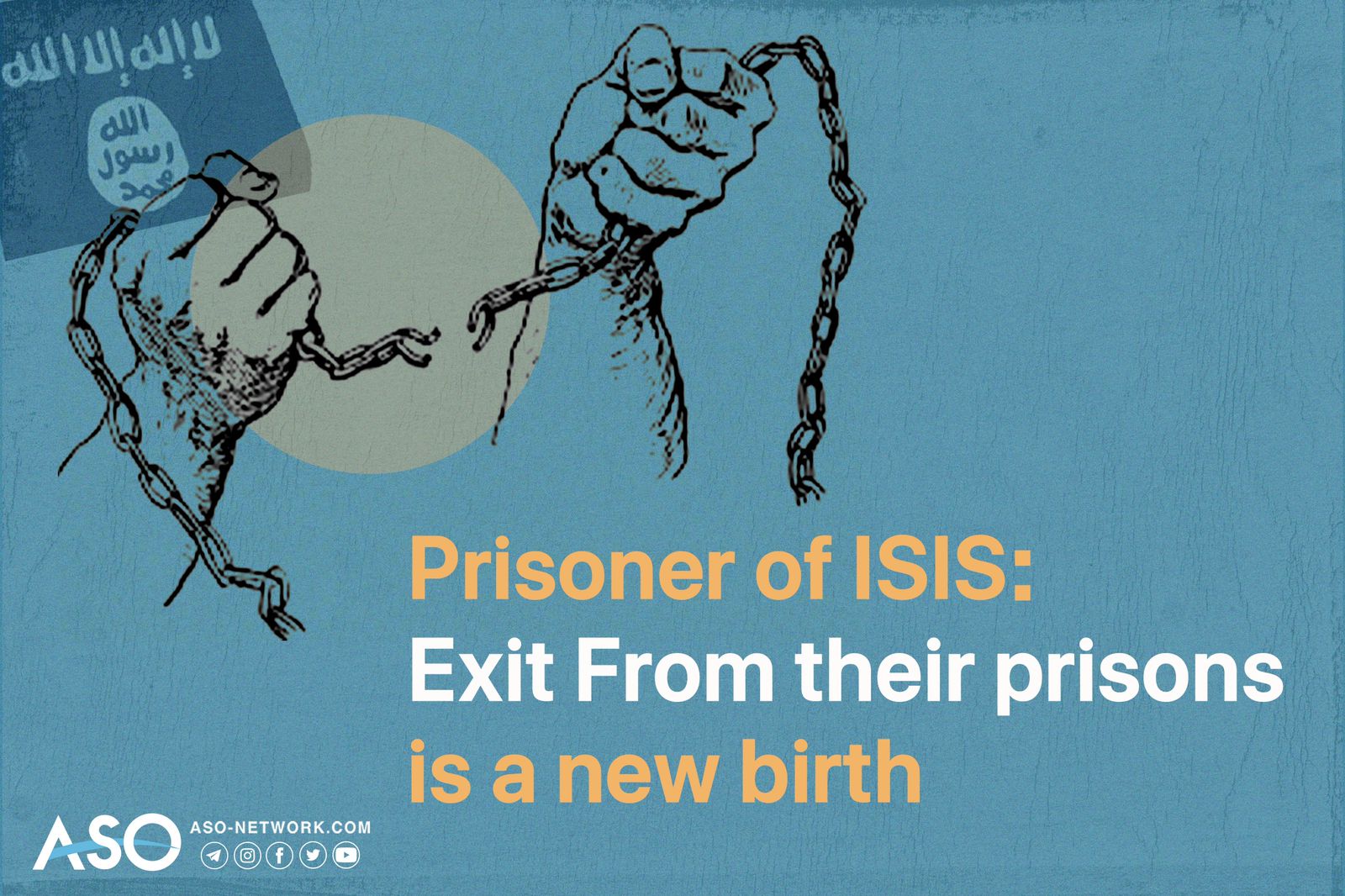Blog
Prisoner by ISIS: Leaving their prisons is a new birth

Stories from the series Returning from Death, collected by ASO News Network, show the tragedy of civilians who suffered pain during the period of ISIS rule, realistic novels and stories that express the extent of terrorism and extremism in affecting the structure of society.
“Back from death”
A series of testimonies from the heart of the tragedy… Civilians who died under ISIS rule in North-East Syria
A series of special reports produced by the ASO News Network, published for the first time consecutively, highlighting the terrible violations that the city of Tabqa witnessed during the period of ISIS control.
Horrific stories from eyewitnesses who lived through the terrorist organization’s nightmare, where families were subjected to the harshest types of physical and psychological torture; From humiliating punishments that waste human dignity, to dark prisons from which only a few emerge alive, and ending with the destruction of schools and turning them into death factories.
We share with you these living testimonies to highlight the extent of the suffering and pain, and to present a true picture of what happened during that dark period.
All rights reserved to ASO News Network
Northeast Syria 2024
From Al-Tapqa written by: Hassan Al-Ahmad
Mohammad (A) lived a harsh experience in ISIS security prisons, which were among the ugliest and most cruel prisons, where he was subjected to the most horrific types of psychological and physical torture. He was arrested from his home, and it was not known at first the reason for his detention, which lasted for nearly twenty days. Later, during the investigation, he was accused of being an employee for messaging one of his friends on WhatsApp, asking him to photograph his house.
Mohammad told ASO News Network the details of his arrest and imprisonment, where his house was raided by an H1 car carrying a number of masked men wearing Pakistani (Chechen in colloquial term) uniforms and black masks. He was blindfolded, his hands were tied behind him, and he was placed in the car. Then he was driven around the streets of Tabqa city to make him think that the place was unknown.

He was taken to the “security” prison in Al-Burj building opposite the third district in Tabqa, or as the people of Tabqa call it, “the Tower of Death” because few people got out from it alive. The location was known to other prisoners, and he was placed in a small single cell with dimensions (1 x 1 m), containing a place for the toilet, a water tap, and an air extractor. Psychological torment was dominating the situation, as frightening thoughts and an unknown fate dominated Mohammad’s mind, with the sounds of torture and screams close to his cell.
Mohammad says that he did not know night from day, as death, fear and terror took control of the situation. He tells the story of a young man who was imprisoned with him for a day and sentenced to death by slaughter with a knife on charges of being an employee. When the young man was taken to be executed, Mohammad lost his mind and found no way but to cry over that young man who asked him to convey a message to his mother in case he came out safely.

The next day, Mohammad discovered a hole next to the water tap leading to the adjacent cell. He started talking with another 19-year-old young man, who was also sentenced to retaliation and slaughter for smuggling people to Turkey. Hours later, the young man no longer answered, and Mohammad later learned that he had been transferred to the execution fields in the city of Maadan in Al-Raqqa countryside. “They were sad and heavy moments that words cannot describe,” Mohammad says.
Three days later, Mohammed and a number of other prisoners were taken blindfolded to the black stadium in Raqqa, which ISIS called “Point 11.” There, he was placed in a single cell with a doctor who was accused of communicating with his wife in Syrian government areas, where he described the situation of Raqqa to her through a phone conversation. A few hours later, the doctor was called to investigate, and he returned wearing an orange dress, which meant that he had been sentenced to death.

Mohammad remained in the cell alone for several days without investigation, until the black stadium was bombed by aircraft, which led to the doors being taken off and flying. The prisoners began to escape, and Mohammad was injured by flying stones. At the door, there were cars waiting to take them to another unknown location.
The next day, Mohammad was brought before the investigation, and he learned that he was accused of having a WhatsApp conversation. Late at night, they were deported by car and told to get out and run. Then, Mohammad knew that he had gotten out of prison alive. It was before dawn, and he ran hard barefoot without looking back, until he found an open mosque and entered it. In the morning, he asked a taxi driver to take him to his family in Tabqa, and he paid him the fare.

At the end of telling his story, his eyes filled with tears, Mohammed says he still suffers from the fear and terror he experienced in an ISIS prison. He did not forget those painful memories and the executed prisoners. He described his release from prison as “a resurrection after death or a new birth.”












